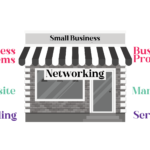Erica Wolfe-Murray is one of the UK’s leading Business and Innovation experts. She is also the founder of Lola-Media.co.uk
As we have all stood by watching the political fall-out of the Brexit vote two years ago, most of us have quietly got on with our lives running our businesses, going on holiday, see family, friends and doing the ‘do’. But without doubt there will have been a continual thread running through all our thinking asking how best we can protect ourselves, our businesses from the Brexit fallout – whatever that is going to be.
I work with many small and micro companies, some of whom have global reach and impact. They include retailers, design companies, consultants, fabricators, as well as apps developers. Yes, the impact of Brexit will be felt through their international trade. However it is also going to be keenly felt by those who trade solely in the UK, as spend falls, caution comes to the fore and we all look to protect the business, the life we have. But out of the undoubted tough days ahead – opportunities will arise, so how can you best position yourself to make the most of where you find your business?
Here are a handful of ideas to help build resilience against the potential rough waters ahead. These ideas work for companies as well as for many of the UK’s 4.6m freelancers who will also need to ensure they develop commercial flexibility in the same way.
- Introduce a pricing range
If you don’t already, ensure you offer a spread of pricing models so customers with varying budgets can buy from you. This can be worth introducing for existing clients as well as new ones. Trading is going to be about protecting your current market share as well as helping people buy more easily from you.
- If you have the ability – offer inventive, helpful payment terms.
There are many different and new models out there – who would have thought shaving products could be a subscription business? Look around see what new ways of allowing customers to pay are happening. How can you build these into your terms? Can you add different ways of taking payment too if you don’t already do so – such as credit cards, Paypal etc.
- Are there new marketplaces you can access?
We are all using internet marketplaces to buy a wide range of products and services today. Have you considered how you can take advantage of this worldwide marketplace?
I encourage companies to really look at their intellectual assets to see how these might be adapted to a digital marketplace. Doing this allows them to remove some of the currency and logistic friction that Brexit may involve. And is there any potential for licence revenue to be developed in other marketplaces?
On a smaller scale ask yourself if you can publish a book, a guide, online learning, list on AirBnB? All of these benefit from established marketplaces you may not already be on, so how can you use these to generate new, untapped revenues?
- Add new revenue streams to build resilience in your business
Most businesses in the UK only earn revenue in a couple of ways – for example selling a product or a service. They overlook the value of the actual knowledge they have about what they do. They don’t realise their understanding/behaviours of their market may also be a potential revenue driver. Or see how their adapted knowledge could be offered back to their past customer/client list as a new report or trade event.
And whilst I can understand the drive to focus on and deliver one core offer really well – might this approach endanger your business too, if that market slows, or customers fail to materialise at the rate you need to ensure profitability?
Investigating whether you can offer a new service that taps into a trend, into changing behavioural or spending patterns is good to do. Even if the answer is ‘no’. It will open your eyes into other areas you may not have considered.
A small corporate gift company, Pod Packaging, who’s product range was largely made from recycled aluminium identified three new revenue streams during 2018. They will be building on the growing demand to remove single use plastics from both personal use and the retail cycle. Areas they had not even considered even 12 months ago.
Additional revenue streams can come in a range of guises. Is it worth re-contacting past clients to offer a regular service contract or a subscription payment model? Have you thought of using your knowledge to teach short courses – either in person or online? Is there an event you could run – perhaps working with similarly aligned businesses?
- Hyper-local + regional + national + international market offer
Obviously this will depend on what you do, but many businesses and freelancers gain work from a relatively small geographical radius. Look at your own – where do customers come from, and what are their routes to you?
Can you apply this hyper-local business model to a wider region, to a national or international market?
A long-standing single site retail business Benjamin Pollock’s Toyshop is based in central London. Yet it has a massive following in China with many tourists coming to its tiny jewel-box of a shop. Last year saw it reach out jointly with a Chinese retail mall development company to create a new type of experience on the Chinese mainland.
And don’t overlook that there could be many businesses similar to yours selling in their hyper-local markets too – if you can do something new in yours, can you then train/support others to deliver it in theirs?
This could be a licensing/franchising type model that might have value, both in the UK and internationally.
- Remember the OODA loop
We have no idea what is going to happen in the weeks and months ahead. But what we do know is that each business owner needs to take an inventive approach to their markets. Unlike large companies, small businesses and freelancers can pivot quickly and inventively – the OODA loop is a good model to use in any fast-changing marketplace, whether it is contracting or expanding.
This is an acronym for
- Observe – watch carefully what is happening around you, in your market;
- Orient – position yourself for maximum advantage;
- Decide – what could you do based on the trend you’ve spotted and where your business could seize an advantage;
- Act upon what you seen and trail blaze in that space.
Which brings you round to the start again… observing what is happening….
So be imaginative using all the different intellectual assets that exist in your current business. Really switch your commercial radar on to ensure you are aware of the shifting Brexit winds of change in markets, in attitudes, in ways of charging, of working. Think how you can adapt your business inventively. All these steps will help you face the future with resilience. But start planning now ahead of your competitors, not when you start to feel the cold winds of downturn.
Erica Wolfe-Murray
[yop_poll id=”1″]







